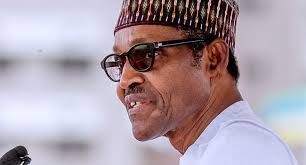Nigeria’s Food Crisis – Blame Govt Failure, Not ‘Middlemen’

President Muhammadu Buhari came into office in 2015 vowing to make Nigeria self-sufficient in food production. His mantra was: “We will grow what we eat and eat what we grow.” Five years on, Nigeria faces a food crisis. But rather than take responsibility for the failure, he is playing the blame game!
Recently, President Buhari said that “exploitative market behaviour by actors has significantly increased among traders”, adding: “The most worrisome are the activities of ‘corrupt’ middlemen and other food traders found to be systematically creating an artificial scarcity so that they can sell at higher prices.
Beware! When a government starts blaming economic actors for the failure of its policies, it’s rudderless, and not governing well. After all, the test of a sound economic or regulatory policy is that it shapes the behaviours of actors in an allocatively efficient way, so that they engage in productive, rather than rent-seeking, activities.
In 2018, President Buhari signed into law Nigeria’s first-ever Competition and Consumer Protection Act. The act “prohibits restrictive or unfair business practices” and gives the Federal Competition and Consumer Protection Commission wide-ranging powers to tackle anti-competitive behaviours.
So, if the Presidency “found” middlemen and traders engaging in exploitative market behaviour, why are they not facing enforcement actions?
The truth is that middlemen and traders are not the real cause of the spikes in food prices. And if they play any role, it is because of the perverse incentives created by the distortive effects of government’s misguided policies.
In 2015, while launching the Central Bank’s Anchor Borrowers Programme, one of his government’s initiatives to increase food production, President Buhari frowned at Nigeria spending huge foreign exchange to import food items that “can easily be produced locally.”
But the premise of that statement was wrong. First, Nigeria’s food import bill is not excessive. According to the National Bureau of Statistics, Nigeria spent $2.9bn on food imports in 2015, rising to $4.1bn in 2017.
For a country of 200m people, those sums are not extraordinary. But even if those figures are deemed to be high, it is not true that Nigeria can “easily” produce all food items locally!
Yet, based on those flawed premises, the Buhari government has aggressively pursued ill-judged interventionist policies since 2015. First, it has poured billions into agricultural production without regard to efficiency and productivity.
Second, the government has made food import bans the totem of its food policy. In 2015, the Central Bank banned 41 items, now 44, from official access to foreign exchange.
President Buhari later imposed a blanket forex ban on all food imports. Last week, he tweeted: “We will not pay a Kobo of our foreign reserves to import food or fertiliser. We will instead empower local farmers and producers.”
There is nothing wrong with empowering local farmers and producers. But how? And to what effect? It’s economically illiterate to think that simply pouring money into food production and protecting local producers from import competition would lead to self-sufficiency and low food prices.
For instance, contrary to the CBN’s promise, the Anchor Borrowers Programme has not “closed the gap between the levels of local rice production and domestic consumptions”.
Furthermore, according to a BBC report, between 2015, when the foreign exchange restrictions for rice came into effect, and early 2017, “the price of a 50kg bag rice of rice went from $24 (N9,204)to $82 (N31,447).” So, where are the welfare effects of the food policy?
Sadly, the Buhari government refuses to recognise basic economic principles and puts ideology above rationality. Basic economics, Economics 101, tells us that the Buhari government’s action and inaction, rather than the activities of some unknown middlemen, are responsible for the rising food prices in Nigeria.
It seems obvious that the main driver of the spikes in food prices is what economists call “cost-push” inflation. The main causes are supply shocks that disrupt production or raise production cost; import bans that raise the prices of locally-produced substitutes and increase the prices of raw materials;
and lack of, or declining, productivity that allows costs to rise, thereby leading to higher prices. All these cost-push or supply factors are responsible for the upwards pressures on food prices in Nigeria.
Take the supply shocks first. Who does not know, for instance, that the marauding herdsmen’s displacement of farming communities across the Middle Belt states, Nigeria’s main food-producing areas, has hugely affected food production?
The violent conflicts and insecurity have significantly disrupted farming, thereby limiting food supply and raising food prices. But what has the government that claims to care about food security done to stop the armed bandits from destroying farming communities and disrupting farming? Little!
What about the import bans, including the border closures? First, they raise the prices of substitute domestic products, where they are available. Second, they raise the prices of intermediate inputs, like fertilisers, which increase production costs and invariably result in higher prices.
In 2016, the BBC interviewed President Buhari’s first-term minister of industry, trade and investment, Dr. Okechukwu Enelamah, about the 41 items denied official access to foreign exchange. He said that the list was intended to “spur local production”, but that it had had “unintended consequences” because it included some input raw materials! Yet, instead of reducing or even abolishing the infamous list, the government is increasing it!
Finally, what about productivity? Government has spent billions on agriculture, but agricultural productivity is extremely low in Nigeria, leading to higher food prices and denying Nigeria export revenues.
For instance, according to the Food and Agricultural Organisation, Nigeria loses $10bn in annual export opportunity from groundnut, palm oil, cocoa and cotton alone because of inefficiency and low productivity. Compare that sum with the annual food import bill!
Nigeria could become an efficient agricultural producer and exporter. Sadly, it’s pursuing a misguided import-substitution policy that’s triggering food crisis and impoverishing its people. That’s not the fault of middlemen, but of a clueless and visionless government!
